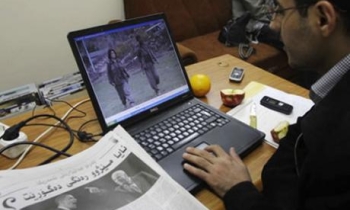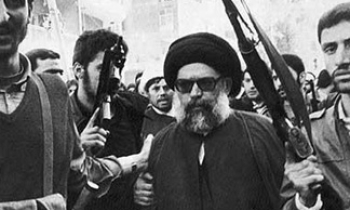The Committee to Protect Journalists (CPJ) has condemned the arrest on criminal defamation charges of Cambodian journalist and human rights activist Pa Guon Tieng. The police arrested Pa and two of his associates on January 4 while they were reporting in northeastern Stung Treng province, the Cambodia Center for Human Rights (CCHR) said. Pa produces a popular call-in radio programme for CCHR called "Voice of Democracy."

"We are deeply disturbed by this arrest, which reflects a pattern of deteriorating press freedom in Cambodia," CPJ Executive Director Ann Cooper said. "We call for the immediate release of Pa Guon Tieng and other Cambodian journalists jailed on similar charges." Prime Minister Hun Sen's government has jailed several journalists and activists in recent months, some for criticising a border treaty with Vietnam.
On January 5, Pa was formally charged as an accomplice to criminal defamation because of his participation in a demonstration in the capital Phnom Penh which criticised the government for the border agreement. The police released the two colleagues arrested with PA who was moved to Phnom Penh, CCHR spokesman Virak Ou told CPJ. He is being held in Prey Sar prison without bail or visitation rights, Ou said.
Cambodian courts have recently charged journalists and activists with violating criminal defamation laws which were in force before the passage of the more democratic 1993 charter, and are punishable by one-year prison terms and possible fines ranging from one million to 10 million riels (US$ $260 to $2,600).
On December 31, the military forced Beehive Radio 105 FM, the station that regularly broadcasts CCHR's "Voice of Democracy" programme, to stop transmitting for over three hours. On the same day CCHR's president Kem Sokha was arrested on criminal defamation charges related to critical comments about the government written on a banner the rights group publicly displayed during International Human Rights Day on December 10, according to spokesman Ou. The programme has since been allowed to resume broadcasting.
"Hun Sen appears to be following the Burmese model by imprisoning peaceful critics of his increasingly authoritarian government," said Brad Adams, Asia director of Human Rights Watch. "The arrest of human rights activists, as well as recent show trials of opposition politicians, is a throwback to the days when Hun Sen ran a one-party state."

In October 2005, the authorities jailed Beehive Radio 105 FM journalist Mam Sonando on criminal defamation charges for critical reports he aired about the treaty with Vietnam. In December, print journalist Hang Sakorn was jailed on similar charges for reporting that a court official had accepted bribes which allegedly influenced his decision in a politically charged land dispute case.
According to the Southeast Asian Press Alliance (SEAPA), the charge against Pa Nguon Teang came amidst growing pressure from donors of international aid to Cambodia and from the international human rights and free expression communities, who are seeking to dissuade the Cambodian government from using a defamation law to silence government critics, including members of the media, and who are calling on the government to immediately free all critics unjustly detained on defamation charges.
"The message is clear: If you criticise the government, you will be thrown in jail," said Adams. "Cambodia's international donors should warn the government to end this crackdown on its critics. They also need to make it clear that they will not continue to subsidise almost half the budget of an increasingly repressive government."









